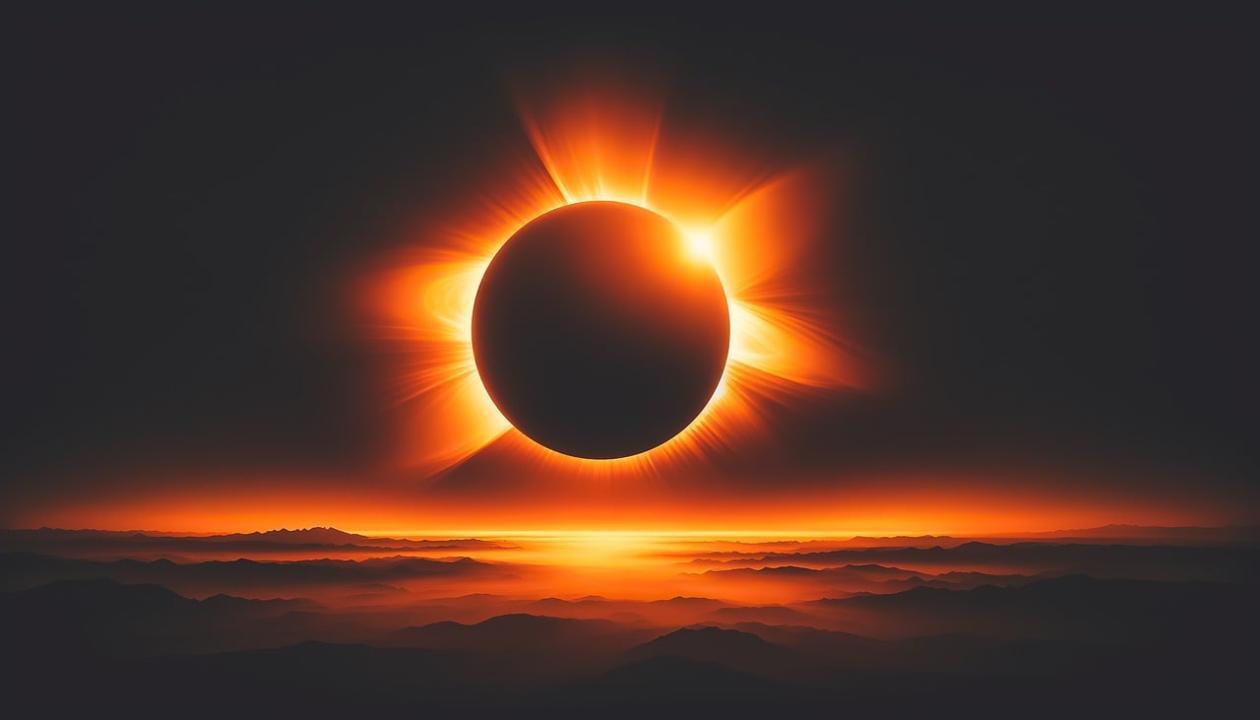Before delving into the specifics of when and where to watch, let's briefly understand what a solar eclipse is

Representational Image. Pic/Pixabay
Every so often, the cosmos treats us to a stunning display of celestial harmony—the solar eclipse. As the moon gracefully aligns itself between the Earth and the sun, a breathtaking dance unfolds in the skies above. For those eager to witness this awe-inspiring event firsthand, timing and location are key. Here's a guide on when and where to watch the next solar eclipse.
Solar eclipse 2024: Understanding the Solar Eclipse Phenomenon
Before delving into the specifics of when and where to watch, let's briefly understand what a solar eclipse is. At its core, a solar eclipse occurs when the moon passes between the Earth and the sun, blocking all or part of the sun's light. This celestial alignment creates a mesmerizing display as the moon casts its shadow on our planet.
There are three main types of solar eclipses: total, partial, and annular. During a total solar eclipse, the moon completely covers the sun, plunging the area within its shadow into darkness. A partial solar eclipse occurs when only a portion of the sun is obscured by the moon, resulting in a crescent-shaped sliver of sunlight. An annular solar eclipse happens when the moon is too far from Earth to completely cover the sun, leaving a ring of sunlight visible around the moon's edges.
Solar Eclipse 2024: Date
The first solar eclipse of 2024 is scheduled to grace the skies on April 8.
Solar eclipse 2024: Will it be visible in India?
However, this celestial extravaganza will not be visible in India. The last occurrence of such a solar eclipse was noted in 1971. Enthusiasts in regions where visibility is granted can anticipate a captivating show, as the Moon will intermittently obscure the Sun for approximately 7.5 minutes, casting a nocturnal ambience during daylight hours.
Solar eclipse 2024: Timings and Duration
The eclipse is expected to commence around 9:12 pm IST on April 8, extending until approximately 1:25 am the following day. While the eclipse will occur during nighttime hours in India, its effects will linger for several hours across different regions of North America, Mexico, and Canada, offering ample opportunity for observation and awe.
Solar eclipse 2024: When to Watch
Solar eclipses occur several times a year, but they are not visible from all parts of the world. The timing and visibility of each eclipse depend on factors such as geographic location and the path of totality—the narrow strip of land where a total solar eclipse is visible. Here are some upcoming solar eclipses and their dates:
Total Solar Eclipse on April 30, 2024: According to the American space agency NASA, the forthcoming total solar eclipse on April 8, 2024, will traverse a path spanning North America, including Mexico, the United States, and Canada. Additionally, the phenomenon will be observable in Western Europe, the Pacific, the Atlantic, the Arctic, Mexico, Central America, the northern reaches of South America, Canada, as well as the Northwestern region of England and Ireland.
Total Solar Eclipse on August 12, 2026: One of the most highly anticipated solar eclipses of the decade, this total eclipse will be visible from parts of North America, Europe, and Africa. The path of totality will sweep across several U.S. states, providing spectators with a rare opportunity to experience complete darkness during the day.
Solar eclipse 2024: Where to Watch
Selecting the perfect viewing location for a solar eclipse involves considering factors such as the path of totality, weather conditions, and accessibility. Here are some tips for choosing where to watch:
Research the Path of Totality: If you're aiming to witness a total solar eclipse, research the path of totality well in advance. Websites and apps dedicated to astronomy often provide detailed maps showing the trajectory of the eclipse and the best viewing locations.
Consider Weather Patterns: Weather can significantly impact your viewing experience, so choose a location with a high probability of clear skies on the day of the eclipse. Coastal areas and mountain peaks are often favoured for their clearer weather conditions.
Plan Ahead and Arrive Early: Popular viewing locations can become crowded on the day of the eclipse, so plan and arrive early to secure a prime spot. Be prepared for traffic congestion and limited parking in some areas.
Safety First: Remember to observe the eclipse safely using solar viewing glasses or other approved solar filters. Looking directly at the sun without proper eye protection can cause permanent eye damage.
Solar eclipse 2024: Conclusion
The opportunity to witness a solar eclipse is a rare and unforgettable experience—one that brings us closer to the wonders of the universe. By understanding when and where to watch, enthusiasts can maximize their chances of witnessing this celestial spectacle in all its glory. Whether you're planning a trip to the path of totality or observing from your backyard, a solar eclipse is a reminder of the beauty and majesty of the cosmos. So mark your calendars, prepare your viewing equipment, and get ready to be mesmerized by the cosmic ballet unfolding above.
 Subscribe today by clicking the link and stay updated with the latest news!" Click here!
Subscribe today by clicking the link and stay updated with the latest news!" Click here!










